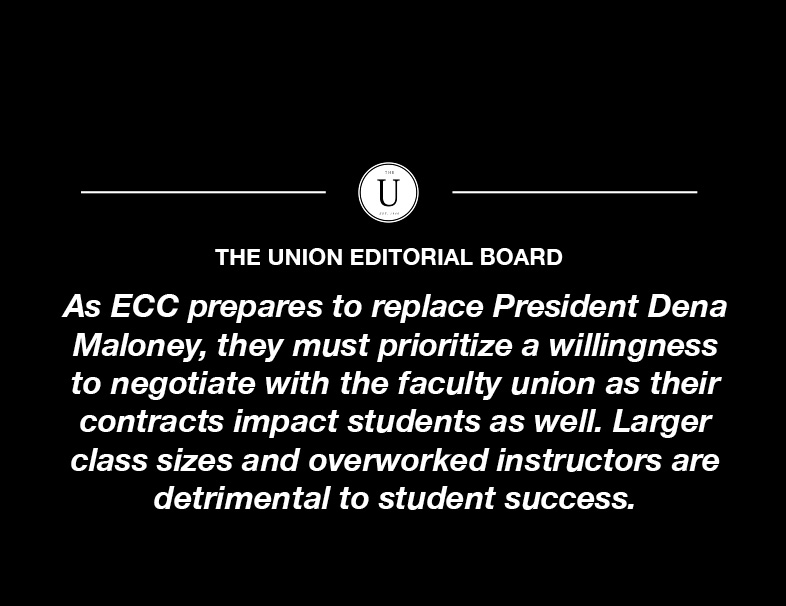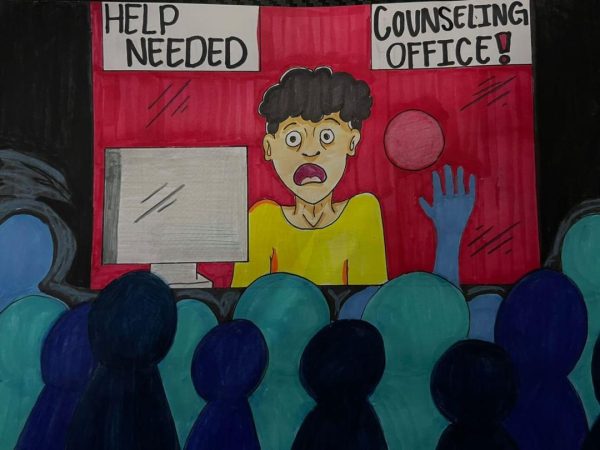As ECC prepares to hire a new president, they must prioritize the needs of students and faculty
With Dena Maloney announcing her retirement as El Camino’s president by the end of the 2020-21 academic year, the faculty union’s needs must be taken seriously by the hiring committee when assessing candidates.
The Union’s Editorial Board feels that it is imperative to the wellbeing of ECC students’ success that their instructors are being treated fairly by the college’s administration, which already has a history of unwillingness to meet their demands.
Since the start of the COVID-19 pandemic, instructors have been forced to work beyond the requirements outlined in their initial job descriptions. Although ECC faculty are competitively paid when compared to other community colleges in southern California, several concerning issues surrounding pay remain.
Part-time faculty are not paid for office hours, lab portions of classes are only paid 75% of what lecture classes pay, and full-time faculty who have worked at ECC for more than 10 years are undercompensated.
Teaching loads have inflated due to the strenuous demands distance education comes with while faculty is asked to work with inadequate online tools and is left to deal with a looming threat on behalf of the administration to add more students to class sizes.
While this addition is supposedly an effort on behalf of ECC’s administration to reduce spending for the 2020-21 budget, it serves no more than to overwork faculty members and limit student’s access to their instructors.
Expanding class sizes while reducing the number of classes offered is a sneaky way to cheat students out of a proper education while forcing faculty to work more for less pay.
Student resource divisions have reportedly been struggling to handle the influx of demands leaving many faculty members to fill in those gaps by providing information and alleviating technical problems on top of completing their daily teaching tasks.
Additionally, faculty have reported the administration has not adequately aided the transition to online learning. There are complaints of inadequate and even inaccurate communication coming from the top-down.
Conflicting messages about educational policies and employment security plague faculty and their abilities to properly serve student needs.
In 2019 the state awarded ECC a 3.26% Cost-of-living adjustment (COLA) increase. Still, faculty did not receive any additions to their pay whatsoever, leaving them to question where the money was allocated and how it was spent.
When questioned by faculty, the administration failed to provide a transparent answer and refused to renegotiate salary.
“Where you belong. Where you succeed.” is no more than an empty promise to students when the faculty who serves them is asked to work longer while remaining underpaid, underappreciated and under-represented; directly affecting the quality of their work.
The Editorial Board understands that current budgetary restrictions make pay increases and class reductions difficult, but these issues existed before COVID-19 and will continue to exist beyond it if action is not taken now.
Students cannot receive the education this college has promised them when access to their instructors, and the quality of their instruction is continuously under attack.
ECC’s administration must consider the adverse effects that trickle down from their neglectful treatment towards faculty that will directly impact students.
The hiring committee in charge of vetting candidates for the position of ECC president must also ensure that faculty needs are being represented accurately and fairly, and with them, those of students.
The future president of ECC, along with the administration, needs to be willing to remain transparent and negotiate with the faculty union.









